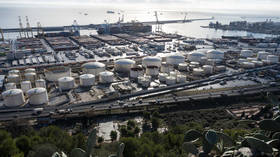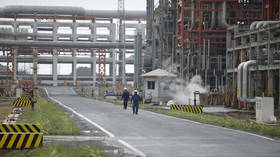EU exposed to high energy costs next winter – Reuters

The EU has not secured enough long-term contracts for liquefied natural gas (LNG) to replace discontinued pipeline supplies from Russia, and is facing the prospect of higher costs next winter due to rising demand in China, Reuters reported on Friday.
The bloc managed to reduce its dependence on Russian energy last year by ramping up LNG imports to 121 million tons, which represented a 60% increase compared to 2021, according to the outlet.
Much of this was bought by the EU on the spot market, where LNG prices are significantly higher than the costs negotiated under long-term contracts. According to the International Energy Agency, LNG prices more than tripled last year and the bloc spent some $190 billion on supercooled gas.
In 2022, the EU accounted for more than a third of the global spot market, compared to just 13% in 2021. Industry analysts have warned that this could jump to over 50% if the bloc fails to secure long-term deals.
Morten Frisch, senior partner at Morten Frisch Consulting, believes the EU should cover around 70-75% of its LNG supply through long-term sale and purchase agreements (SPAs).
“But since the green lobby in Europe has managed to persuade politicians wrongly that hydrogen to a large extent can replace natural gas as an energy carrier by 2030, Europe has become far too reliant on spot and short term purchases of LNG,” he added.
Meanwhile, Asian buyers are at the head of the race for limited global supply – particularly China, which has seen a strong rebound from the pandemic.
“EU companies would need to act first by signing a series of large-scale, long-term SPAs based on the Chinese model, to hedge themselves against any ups and downs of the turbulent global LNG market,” said Victor Tenev, an LNG business consultant at consulting company ROITI.
China’s focus on security of supply has allowed the country to continue its support for green energy projects, whereas European buyers “are concerned about committing to supply well into the start of their net-zero targets,” explained Felix Booth, head of LNG at Vortexa.
The EU is still a long way from fully substituting Russian pipeline gas supplies, leaving the bloc exposed again to “damagingly” expensive spot market, according to Tenev.
For more stories on economy & finance visit RT's business section













